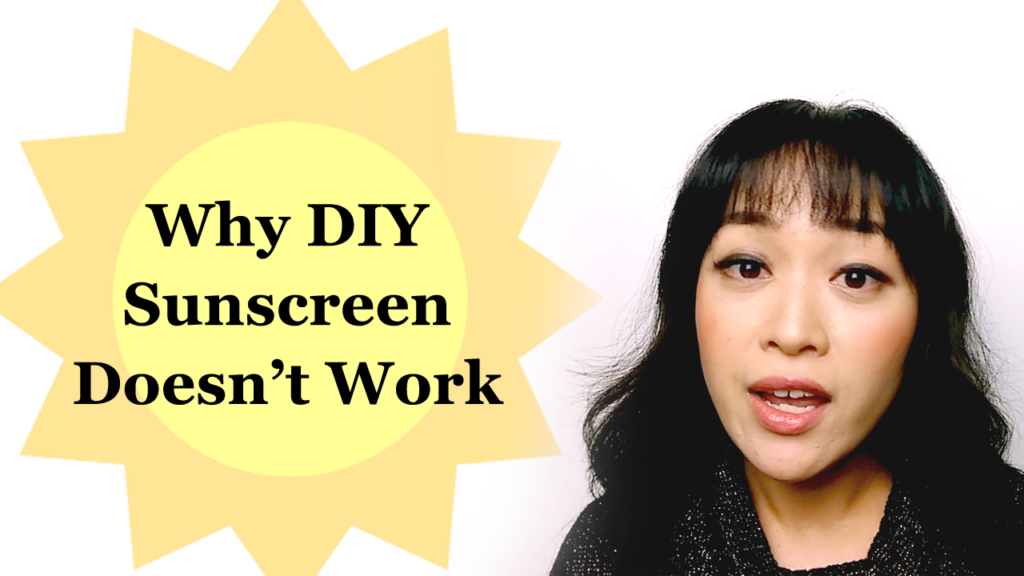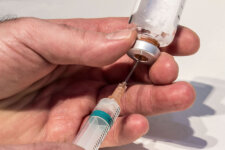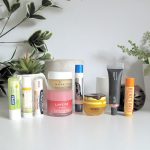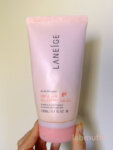Here’s a new video on why DIY sunscreen doesn’t work. It’s a much more detailed version of my post on DIY sunscreen from a while ago. It’s a topic that’s quite important to me, since it’s one of those cases where having the wrong information can cause serious harm!
This video has been a bit delayed due to the rest of my life getting a bit hectic, but I managed to get it out before the Northern Hemisphere summer finished, so go me…
I bought a lapel microphone and some new editing software, so everything is a bit more polished I hope! Check it out here.
Extra notes and references
Since I know there are a lot of nerds out there who like references and extra information, here are some of the sources for specific things I mention in the video (I got lazy with my citation style, sorry):
Skin cancer stats are sourced from the Cancer Council Australia and the Skin Cancer Foundation, who list the original sources at the bottom of their respective sites.
SPF testing guidelines: FDA (USA), TGA (Australia), EC (EU).
Dangers of UVA: Blog Post: Why You Should Protect Yourself From UVA
More info on sunscreen formulation
- SQ Wang & HL Lim (eds), Principles and Practice of Photoprotection: A very comprehensive book on everything related to sunscreen. Part II has a few chapters on sunscreen formulation.
- Realize Beauty, The Trouble With Making Your Own Sunscreen: Amanda Foxon-Hill, a cosmetic chemist, talks about the difficulties she encountered when trying to formulate a sunscreen. Her other posts are also very interesting!
- Kobo Products, Perspectives on Supplying Attenuation Grades (presentation): Info on zinc oxide photoreactivity and surface coatings, particle size and aggregation vs protection.
- BASF Creations Newsletter, Formulating with Zinc Oxide: Lots of information on how to formulate sunscreens with zinc oxide, including some information on dispersion and pH.
- Silverson, Manufacture of Suntan Creams and Lotions: Tips on dispersion from the manufacturer of some of the best industrial homogenisers used in sunscreen manufacture.
Sunscreens are very unlikely to cause endocrine disruption in practice: Journal of the American Academy of Dermatology (open access – quote: “Mathematic modeling indicated that it would take 277 years using a sunscreen containing 6% oxybenzone used at 2 mg/cm2 (the dose recommended for sun-protection factor [SPF] testing by the FDA) or 1 mg/cm2 (reported real-life use) to achieve the systemic levels of oxybenzone achieved in the study in rats”), Australasian Journal of Dermatology (looks at other filters apart from oxybenzone)
Nanoparticles in sunscreens are safe: TGA Literature Review (very comprehensive)
More (open access!) papers on zinc oxide: Nanotechnology Science and Applications, Science and Technology of Advanced Materials
People stay in the sun for longer when wearing sunscreen: JID paper (open access)
Reporting illegal medicines: FDA report form, TGA report form
Do oils increase UV penetration?
This is a topic that I thought deserved a longer write-up.
Studies have found mixed effects of oils on UV protection. In psoriasis patients, UV therapy is sometimes more effective after using an oil, and it’s believed that this is because scaly, opaque psoriatic skin can reflect UV, hence acting as its own “sunscreen”. The oil sticks the flaky skin together so the skin looks clearer, and is clearer to UV as well. Whether this happens significantly in normal skin is up for debate, but it’s certainly a possibility, especially if your skin is on the dry and flaky side.
For individual oils, for every source that reports UV protection, there seems to be another source that gives a negligible number or negative effect. For example, this paper has coconut oil with an in vitro SPF of 7, but New Directions found an in vitro SPF of 0.67 (SPF below 1 means worse than nothing). The same paper found an in vitro SPF of 7.5 for olive oil, but this paper found no effect on human volunteers (SPF ~1). I’m guessing it’s to do with the fact that in vitro measurements are pretty worthless for determining SPF, and that oils, like most other natural mixtures, vary in composition depending on the source and how it’s been processed. All this just seems to point to the fact you can’t rely on oils to give sun protection.
The sunscreen I wave around in the video is SunSense Sensitive Invisible, which was sent to me from Ego as a PR sample (this video was not made in conjunction with them or any other sunscreen companies, before anyone calls me a shill!). It still leaves a white cast but it’s more transparent than any other untinted physical/mineral-only sunscreen I’ve tried, although I prefer chemical or combination sunscreens. I’ll be doing a sunscreen review video soon!
SunSense sunscreen was provided for editorial consideration, which did not affect my opinion. This post also contains affiliate links – if you decide to click through and support Lab Muffin financially (at no extra cost to you), thank you! For more information, see Disclosure Policy.







As I said on You Tube, a very important topic that deserves attention.
Totally agreed!
I haven’t watched the video (can’t at the moment), but your discussion on oils didn’t necessarily answer my own questions LOL. Good lord using olive and coconut oil as sunscreen is retarded as F, seriously people, what the heck. LOL. But I was wondering if oils actually attract sun to your skin, as I’ve long believed (learned that a long time ago). Is that true? I don’t ever use oils when going out in the sun for this express reason. So I’m wondering how true that is. Thanks! As well, I’ve also read that the higher SPF’s are fairly useless. That they only provide about 1% more protection?! Europe has started banning higher SPF’s (like 50 and 60). I use 50 and 60 all the time, but is it even worth it? I’m simply trying to keep my skin as healthy and wrinkle free as possible 😉 Sorry for the long post!
Thank you! You explained this so clearly. I have been curious, but it’s hard to filter through Google results.
So glad to hear! I agree, filtering through Google results is so difficult, especially when there are 500000 people posting the same wrong info -_-
I wear skin oils under my sunscreen (specifically argan oil and rosehip oil, and sometimes I spot pimples with either lemon or tea tree oil). What will this do to the sunscreen? Will it decrease its effectiveness? What I’d guess is that I should let the oils sink in for about 8-10 minutes before patting on the sunscreen.
Oh! Also, I’ve been trying to find info on this sunscreen and I’m hoping you can help. I’m using SuperGoop! mousse sunscreen currently. I like it because it has SPF 50 and it’s broad spectrum, plus it’s not greasy. My reservation is that, being a mousse, it would have less coverage because it’s a lighter-weight product. (It also has some oils in it, but they’re super far down the ingredients list, so I doubt it matters much.)
SuperGoop! has normal liquid sunscreen, so I’ve been thinking of switching to be safe. But I’d love to hear your opinion. Thanks!
I have a video on layering things with sunscreen that answers your question in much more detail than I can fit here! 🙂 All Your Sunscreen and Makeup Questions Answered
The same weight will have the same protection, so you’ll have to apply much more of the mousse.
Thank you! 🙂
In the video it says that oils decrease sunscreen effectiveness. If I let the face oils sink in and then blot off the excess before applying sunscreen, will I be ok? My guess is that with the oils, my SPF 50 sunscreen will decrease in SPF but still be effective. But it would also be good to know whether you think this is true or not, since you have the PhD! 🙂
Hi, thanks for keeping up your blog.
I’m just wondering if you’ll be able to answer these questions:
1. I’ve heard that zinc can degrade avobenzone, but can avobenzone degrade zinc?
2. If using a sunscreen with stabilized avobenzone, can you layer zinc on top without any degradation? (i.e. La Roche Posay Anthelios Light Fluid + a 20% Zinc Sunscreen)
Thank you!
1. Nope!
2. It’s hard to say… I would say it’s still likely to decrease stability but I can’t say how significantly!
Thanks for your reply!
well i guess if 1. Zinc wont be degraded by Avobenzone then 2. As long as your Zinc is adequately applied, you still get adequate UVA protection even with decreased stability in Avobenzone. (i’m assuming)
Hi,
Not sure if my comment got posted!
But I think I was asking that if 1. Zinc will not be degraded by Avobenzone, then 2. With adequate Zinc applied over an Avobenzone sunscreen will you still get adequate UV protection?
Thanks!